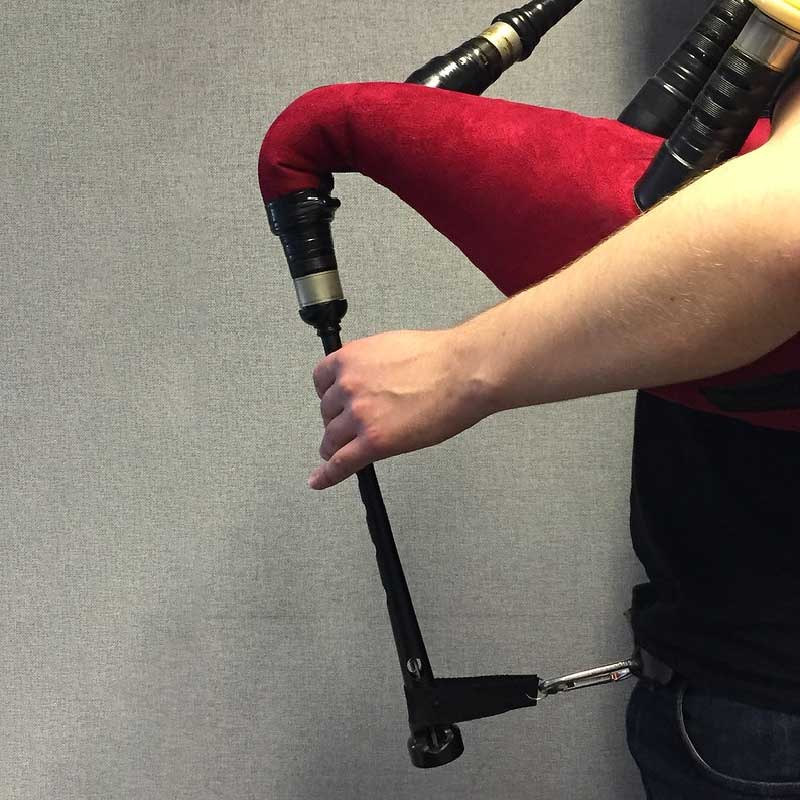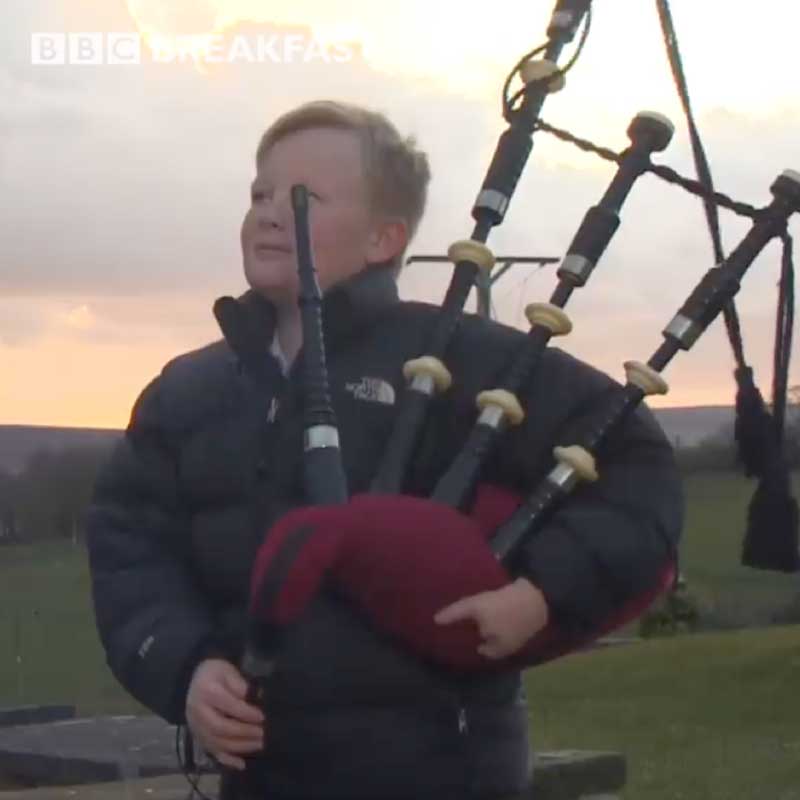Case Study: Introducing the world’s first one-handed bagpipe playerAt first glance, the bagpipe is an instrument that lends itself well to adaptation for one-handed playing. After all, the bagpipe scale has only nine notes, far fewer than other instruments that have been successfully adapted for one handed performance.
|
|
Nevertheless, instrument adaptation has proved far from straightforward. Here we chart the progress of the P-bROCK Digital Bagpipe Chanter which was a winning entry of our 2017 OHMI Competition, submitted by Duncan Menzies of Queen Mary University of London (QMUL).
An Electronics first degree and a childhood passion for the Great Highland Bagpipe (GHB) proved to be a winning combination for PhD student Duncan Menzies. His proposal to develop a technological solution to learn the bagpipes one-handed was a winning entry in the 2017 OHMI Competition. It was perhaps Duncan’s departure from the wide, open spaces of Scotland to a new life in London that first brought into focus the need for a Digital Bagpipe Chanter. As he explains, Pipe playing tends to be incredibly rowdy. Perhaps not the best instrument to practise in a city environment where neighbours are in very close proximity! Added to that, the further you get from Scotland, the fewer teachers there are. It was clear that a Digital Bagpipe Chanter could help with the learning process in two key ways. Firstly, the ability to play the instrument quietly via headphones! Secondly, an accompanying software system which, in the absence of an instructor, would assist new players in learning the one-handed technique and provide them with feedback on how well the instrument is being played. |
The GHB’s suitability for one-handed playing
|
The GHB is comprised of five individual pipes (two tenor drones, one bass drone, the blowpipe and the melody pipe or chanter) attached to an airtight bag which acts as an air reservoir.
Maintaining a constant pressure on the bag with the elbow ensures a steady flow of air through the reeds in the drones and chanter. This is what gives the bagpipe a continuous, unbroken sound. The chanter is therefore the sole means of expressive control of the GHB. Traditionally, the chanter is held in both hands, and is played by covering and uncovering the eight tone holes. Although the melodic range of the chanter could easily be reproduced using custom metal key-work (as has been achieved with great success on the one-handed recorder for example), this approach would make it extremely difficult, or likely impossible, to perform the ornaments/embellishments (which are a fundamental element of GHB playing) to be performed sufficiently quickly. (These embellishments are formally defined sequences of notes performed in very rapid succession, usually by lifting or striking one finger at a time.) Since the P-bROCK chanter is a digital instrument, the nine notes of the GHB scale are easily mapped to any combination of tone hole fingerings. A one-handed player is able to use five of the eight tone holes (including the thumb hole on the back of the chanter), giving a total of 32 possible fingerings. A custom software system provides facilities for recording, playback, visualisation and analysis of the player’s performance. It incorporates a novel GHB ornament recognition algorithm which was developed by Duncan along with Dr Andrew McPherson, also of QMUL, in 2015). The algorithm automatically detects and evaluates any embellishments performed, and identifies errors in the player’s technique in the form of visual and textual feedback. |
Gaining inspiration from Guitar Hero!
|
The ornament and error detection facilities have also been developed into a game interface, Bagpipe Hero, which is designed to increase motivation to practise among younger learners while providing meaningful scores and feedback on the player’s performance.
Inspired by the popular “Guitar Hero” computer game series, Bagpipe Hero, features a collection of pre-recorded tunes. The player gains points by playing the correct notes and embellishments, and, upon completion, is provided with a performance summary. |
Introducing Guy, our early adopterAn early prototype was developed and awarded to ten-year-old Guy, who wanted to learn the pipes to emulate his Uncle Neil, an accomplished GHB player.
Guy's bagpipe hero game is integral to his learning and he loves practising with this aid. As his Mum, Mary, explains, "Guy is a complete perfectionist so will often play on this game until he's satisfied that he has done his best. We feel so fortunate and lucky to have found Duncan and OHMI to make Guy's ambition of playing the bagpipes one handed". |
Australia calling
|
The project to manufacture and distribute the Digital Bagpipe Chanter is almost complete. The chanter manufacturer has drilled the chambers to create the necessary new holes. The circuit boards are on order and the final piece of the jigsaw is assembly and programming. Music to the ears no doubt for the waiting list of pipers who are eagerly awaiting delivery of their new chanter – some as far away as Australia!
It may be an instrument that dates back in Scotland to the fifteenth century but this very ancient of instruments is benefiting from a very modern intervention. |
Donate to OHMIThere are so many disabled people who are desperate to play music with their peers. We can help to make that happen – but we can only do that with the wonderful support of our funders and donors.
As our instruments have to be hand-made by experts, they can only be produced in small numbers and are therefore expensive. Every little really does help.
|
Contact usIf you have a query or wish to contact us, please use the contact form available here.
You can also write to us: The OHMI Trust, 29 Woodbourne Road, Harborne, Birmingham B17 8BY |
Subscribe to our NewsletterIf you would like to join our mailing list and keep up to date with the latest news, please complete the form available here.
|
Privacy and Cookies Notice | Complaints Policy
All content © OHMI - Enabling Music-Making for Physically Disabled People
The OHMI Trust is a registered charity (Registered in England and Wales Charity No. 1143623, Scotland Charity No. SC052047).
Registered office: 29 Woodbourne Road, Harborne, Birmingham, B17 8BY
All content © OHMI - Enabling Music-Making for Physically Disabled People
The OHMI Trust is a registered charity (Registered in England and Wales Charity No. 1143623, Scotland Charity No. SC052047).
Registered office: 29 Woodbourne Road, Harborne, Birmingham, B17 8BY






